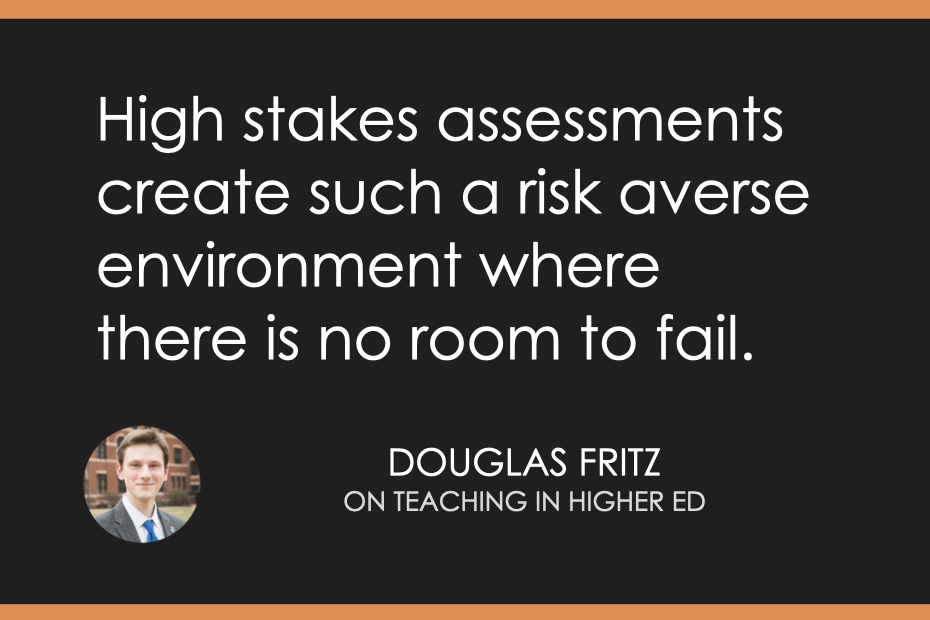
Clean up your inbox today and keep it that way forever. SaneBox uses personalized algorithms to quickly learn your email habits and show your most important messages first, while filtering out the noise. Best of all, it works wherever you check email, on all clients and devices. Get Started Today With a $25 Credit!
Erin Whitteck and Douglas Fritz share efforts toward more equitable assessment on episode 370 of the Teaching in Higher Ed podcast.

First impressions with students are extremely important.
-Erin Whitteck
High stakes assessments create such a risk averse environment where there is no room to fail.
-Douglas Fritz
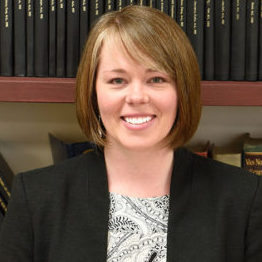
Erin Whitteck is the Assistant Director of the Center for Teaching and Learning and Assistant Teaching Professor of Chemistry and Biochemistry at the University of Missouri - St. Louis (UMSL). Erin has been awarded several teaching awards during her 13 year career teaching general chemistry, organic chemistry, and chemistry and society classes at a range of institutions. This wide variety of experiences has afforded her a rare perspective on the importance of context in teaching and learning. Erin and her partner, John, are also parents to two kids, a dog Ollie, and cat Waffles.
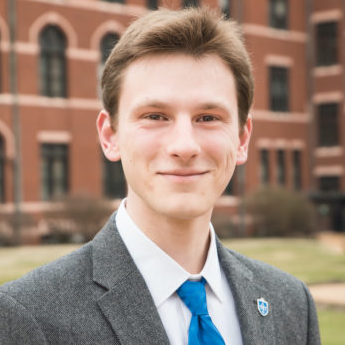
Douglas Fritz is a rising M1 MD/PhD student interested in the intersection of infectious disease, medicine, and climate change. He has both immensely benefited from and been frustrated by STEM education for over 17 years. He has spent his bridge years between undergrad and medical school as a curious student, educator, and scientist as a Fulbright Scholar in North Macedonia and a Post-bac at the NIH. Douglas is passionate about medicine, environmental justice, and public health.
Bonni Stachowiak is the producer and host of the Teaching in Higher Ed podcast, which has been airing weekly since June of 2014. Bonni is the Dean of Teaching and Learning at Vanguard University of Southern California. She’s also a full Professor of Business and Management. She’s been teaching in-person, blended, and online courses throughout her entire career in higher education. Bonni and her husband, Dave, are parents to two curious kids, who regularly shape their perspectives on teaching and learning.
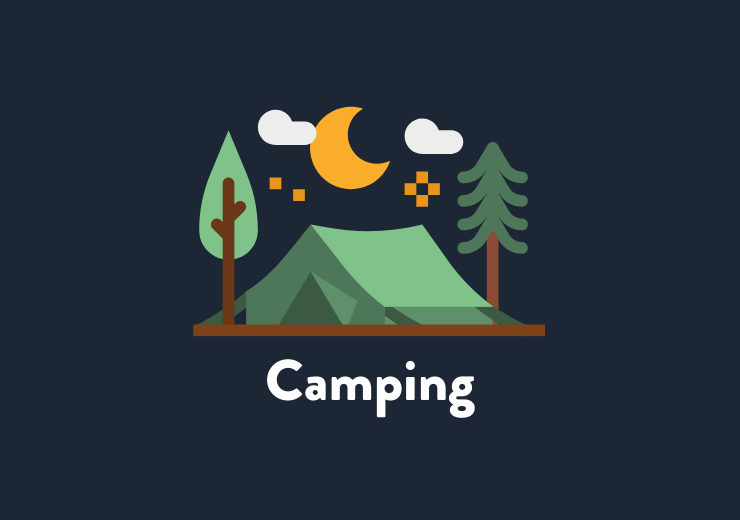

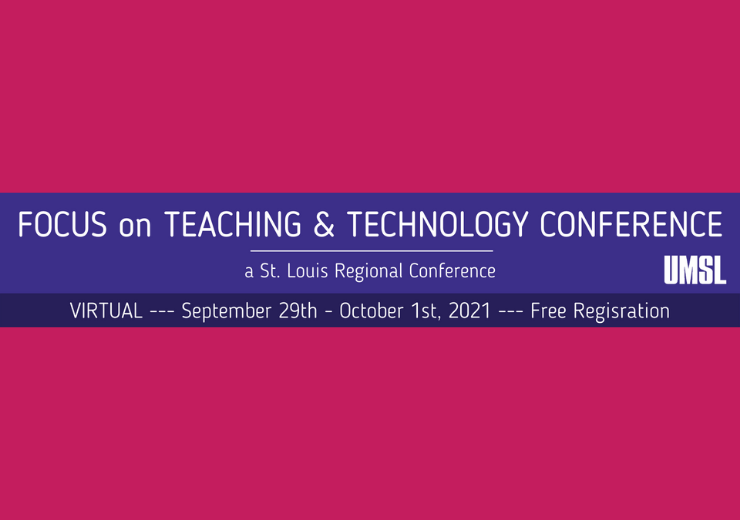
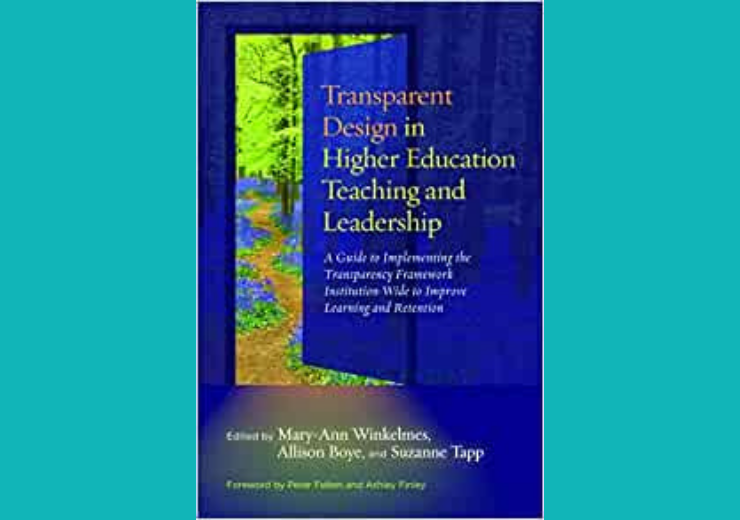
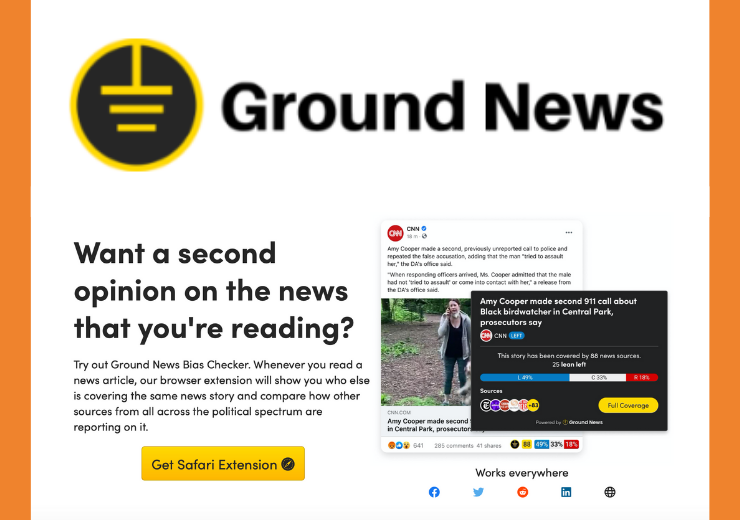

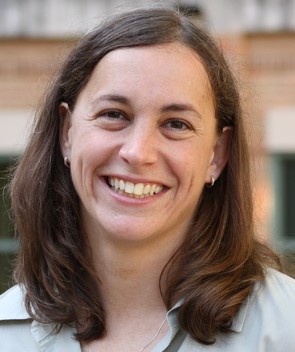
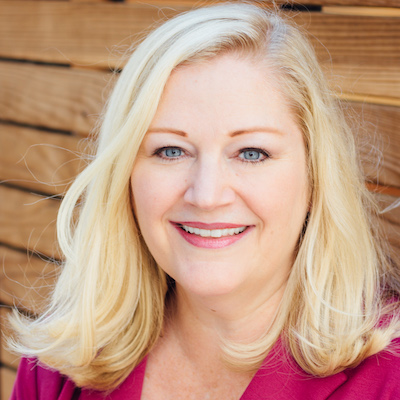
The transcript of this episode has been made possible through a financial contribution by the Association of College and University Educators (ACUE). ACUE is on a mission to ensure student success through quality instruction. In partnership with institutions of higher education nationwide, ACUE supports and credentials faculty members in the use of evidence-based teaching practices that drive student engagement, retention, and learning.
[00:00:00] Bonni Stachowiak: Today, on Episode No. 370 of The Teaching in Higher Ed Podcast; Erin Whitteck, and Douglas Fritz join me to talk about: Toward More Equitable Assessment.
[00:00:14] Production Credit: Produced by Innovate Learning: Maximizing human potential.
[00:00:23] Bonni: Welcome to this episode of Teaching in Higher Ed. I’m Bonni Stachowiak, and this is the space where we explore the art and science of being more effective at facilitating learning. We also share ways to improve our productivity approaches so we can have more peace in our lives and be even more present for our students.
Erin Whitteck is the Assistant Director of the Center for Teaching and Learning, and Assessment Teaching Professor of Chemistry and Biochemistry at the University of Missouri-St. Louis. Erin has been awarded several teaching awards during her 13-year career teaching general chemistry, organic chemistry, and chemistry and society classes at a range of institutions. This wide variety of experiences has afforded her a rare perspective on the importance of context in teaching and learning. Erin and her partner, John, are also parents to two kids; a dog, Ollie; and cat, Waffles, who you’ll hear about during the episode. [chuckles]
Douglas Fritz is a rising M1MD PhD student, interested in the intersection of infectious disease, medicine, and climate change. He has both immensely benefited from and been frustrated by STEM education for over 17 years. He has spent his Bridge years between undergrad and medical school as a curious student, educator, and scientist as a Fulbright scholar in North Macedonia, and a Postbac at the NIH. Douglas is passionate about medicine, environmental justice, and public health.
Douglas, and Erin, welcome to Teaching in Higher Ed.
[00:02:19] Douglas Fritz: Hi, thanks for having me.
[00:02:19] Erin Whitteck: Thank you.
[00:02:21] Bonni: I know we all have these gifts that we really treasure. I’ve shared about in a past episode – Episode No. 208 – quite relevant of a number, about a special keychain gift that a former student gave to me. Every time I look at that keychain, it reminds me of how I got into teaching and just how that’s been such a part of my life since a very early age.
Erin, I know you have a special gift, among many that you treasure in your family. Could you tell us about that? It relates to our guest today as well.
[00:02:53] Erin: Yes. The other guest, Douglas, made me this really nice laser-cut plaque that I have up in my kitchen that I look at every day when I feed my cat. It’s called the Whitteck House of Waffles because my cat’s name is Waffles, and there’s a whole story behind the Douglas’s affinity to waffles as well. I don’t know if he wants to tell a little bit about that background, too.
[00:03:18] Bonni: Tell us about Waffles, Douglas.
[00:03:20] Douglas: Yes, so I don’t know. For some reason, waffles has really been a theme throughout my life. I got into a really interesting debate with a friend in high school about whether or not waffles were better than pancakes, and that turned into a speech that I gave at my high school graduation. Since then, waffles have just started popping up in various different areas.
So, when Erin announced that she had a cat named Waffles, I knew that it was a great opportunity for me to use the laser cutter in the library, and then also to blend my appreciation for waffles into something for her, to thank her for being a fantastic mentor throughout my college career.
[00:04:00] Bonni: I totally love it. Although, I feel like I should have warned the two of you. If we’re going to talk about such controversial topics like pancakes versus waffles, we have to work our way into that and have time for people to really unpack something that’s controversial. I’m glad my kids are in the other room and can’t hear us talking because this would– I could see there being quite the debate around that. I’m going to get all kinds of emails from people that are going to have their own things to say about that too.
In all seriousness, Douglas, what is something that you treasure, the way that Erin and I treasure our invaluable gifts?
[00:04:30] Douglas: For me, I have just a box. It’s a fancy box that a friend made me a couple of years ago, and then I now put letters in it from different folks – some from teachers, some from friends. When I was traveling around the world, people would send me mail, which was really great. So, having that box of letters with me is good to open that every once in a while and just appreciate how loved I am, and how many great friends and colleagues I have. It keeps me grounded.
[00:05:00] Bonni: I love that. Just thinking about the power of a letter: when I was little and I’d go off to summer camp, they’d have us write letters to ourselves and then they would mail them back to us. So, I did a version of that with our faculty a couple years back for the new faculty experience, for them to write letters to themselves of what their aspirations were about, what kind of teachers they wanted to be, and then mailed it off.
What you’re talking about, Douglas, is a way we can do this without as much orchestration. That it can be more a prescription of hope and a reminder of, like you said, being loved – anytime that you need it, you’ve got a box like that there. That’s something that we always recommend that people do. Just when you get discouraged, you’re not feeling particularly loved, there’s your source to just remind you of that. Thank you for sharing that with us.
Erin, I would like to hear from you about first impressions and specifically, your first impressions of Douglas. Then I suppose, Douglas, we could probably ask you the same thing. But talk a little bit about first impressions, what you think about them in general, and then how that interaction with Douglas early on was for you.
[00:06:04] Erin: I think first impressions, especially with students, are extremely important and in particular, in large classes, because sometimes that might be the only interaction you have with a student. So, my interaction with Douglas was eye-opening for me because I’m teaching– I’m a nontenure-track professor, female, teaching chemistry, generally. In this case, organic chemistry.
When I was co-teaching with a tenure-track male professor, he was teaching first in our sequence. We were going to split up the class, and I was going to teach second. I felt like students were going to see me as kind of his little helper, not his equal in any way. So, I was really, really taking that to heart and thinking about that on a regular basis.
I was walking in the class, then Douglas came up beside me and said, “Oh, Dr. Whitteck, I really love your shoes,” and I just said, “I’m more than my shoes.” [chuckles] Then I immediately felt awful, and I was worried that I’d already ruined that relationship because I was really putting on Douglas my insecurities. That really made me rethink first impressions, especially with students.
[00:07:20] Bonni: Oh, I just love that. Douglas, do you have a story about your first impression? Maybe of this class, of your discipline, or anything that comes to mind in terms of first impressions, and how wrong we can be sometimes with them?
[00:07:34] Douglas: Yes. I think Erin’s first impression, it caught me off guard, but I was trying to be really cognizant of that at the same time, too. When she said, “I’m more than my shoes,” I immediately was just like, “Aw, shucks, that’s right. Why did I start with that?” She’s teaching an organic chemistry class. This is one of the hardest classes. The two professors who were teaching it have already demonstrated that it’s going to be amazing and they understand the struggle that it’s going to be.
It seemed she had demonstrated that this class, you know, created a safe space that was super welcoming; and I had cut all the way through all of that and said shoes are what I want to talk about today. I felt equally as bad after that conversation as well, too.
[00:08:24] Bonni: What happened next? I think one of the things, I guess, Erin, that you said is that we don’t have to stay there. I always think of this in terms of whether it’s microaggressions or anything that might come up. If it’s something that happens in a class, even, that you didn’t do but students, you’re not happy with the exchange, I walk around for years just reminiscing about how terrible that was.
I always try to remind myself, and any extent I could remind other people, we’re not done then. We can have a terrible interaction and yet here we are, with Erin inviting you to be on a podcast, so clearly your relationship didn’t stay there. How did you get past that? What happened next?
[00:09:05] Erin: I think we just both realized that that was not the impression we wanted to have on each other – at least that’s what I think – and we continued to build that relationship and moved forward. I don’t think I apologized. Did I, Douglas? I don’t think we apologized to each other necessarily, but I think we both realized the fault in our ways and started over again.
[00:09:31] Douglas: Yes, I think we just kept moving. Because the thing that tied us together was that we were both in the same class and you were still my professor, so regardless of [crosstalk]–
[00:09:41] Erin: So, he had to be nice to me.
[00:09:42] Douglas: Yes, I had to be nice to you.
[00:09:46] Bonni: Well, you know you’re on a podcast now, so now could be the time– No, I’m kidding. [laughs] We know with first impressions that how easy it is to miscommunicate. Erin, you already identified just anytime– I mean, we’re always doing it. We’re always projecting things onto people that may or may not be accurate, and so just our awareness of that. Then the importance of just recognizing it doesn’t have to end there. That we can return from these things and perhaps even have even stronger relationships because of the trust that you build as you work back through those kinds of things.
I think there’s so many parallels between the kind of trust that is needed in human relationships and the kind of trust that is needed with assessment. Assessment so often is perceived as irrelevant work, busywork, or stuff that doesn’t matter. We’ve had lots of episodes around how the way that we think about assessment might inadvertently encourage cheating. There’s so much that we can unpack here. Today’s conversation, we’re going to be thinking specifically about ways to have more equitable assessment.
I think it would be helpful if we start just, Douglas, hearing from you. How have you experienced assessment in general as a pre-med student?
[00:11:09] Douglas: Assessment is a real big part of being a pre-med student. From the moment you take the ACT and the SAT to the moment you take the MCAT, there’s a lot of assessment happening. Even in medical school, there’s quite a bit of assessment. A lot of this assessment follows the same pattern. It’s these really big, long, endurance sort of tests, where you have to train yourself for the exam itself, not necessarily the content on the exam.
The MCAT is seen as a marathon that you train up to, just because it is seven hours long. Throughout that process, when you’re training for the MCAT, so to speak, when you are in undergrad and you’re studying biology, and then you’re studying microbiology, and then you’re studying organic chemistry; these are all really heavy-hitting courses that a lot of times have very similar assessment structures, where it’ll be a midterm and a final, and so there’s a lot of content on those exams. That can be really stressful. I found that to be extremely stressful.
I think my experience with assessment is in two ways. One is that it caused a lot of anxiety for me because it’s just very difficult to study for an exam, especially if you have multiple classes that have these sort of high-stakes assessments where they really do dictate your path to medical school and your chances of getting into medical school. That was very stressful but at the same time, I knew that I had to be very good at it.
So, it was also a skill that I worked hard to develop, or was at least programmed to accept because it’s something that you can’t really get into medical school without the MCAT. You have to be able to perform very well on these exams, which are high-stakes exams, and you have to be able to deal with all of that anxiety and push all that down, and just put your knowledge to work on test day.
It’s this balance of, I want to be really good at it and I’m becoming very good at it and I’m well-practiced in it, but then also it’s something that gave me a lot of anxiety and still does give me a lot of testing anxiety.
[00:13:14] Bonni: Erin, you’ve been someone who has inflicted assessment on others. Could you talk a little bit about your journey in thinking about assessment?
[00:13:24] Erin: Yes. It really has been a journey, and it’s one of the reasons why I wanted to bring a student on the podcast today with me because students have been integral to that journey. I did a Scholarship of Teaching and Learning project, where I looked at the attitude of students coming in and out of organic chemistry, and what I saw was that there wasn’t really a huge change. Which was really disheartening for me because I had put a lot into the class in terms of building relationships.
I was really influenced by Peter Felten and his work around Relationship-Rich Education. He had actually come to my previous institution and spoke, and he was talking about the importance of relationships. I remember lifting up my hand and I said, “But I have 350 students. I can’t be that person to everybody in the class.” He encouraged me to create those structures where students could build relationships with each other and learning assistance. I put a lot of work into that structure and putting more active learning into my class where students worked on problems together, and so I was kind of demoralized that students didn’t come out of the class with a better attitude towards chemistry.
What I asked them was, what was the biggest positive and negative influence on your attitude? And positive was the relationship so that was a win, where they had created some sort of meaningful relationship with another student, or a learning assistant, or someone else, or me or someone else in the class; but the biggest negative impact on their attitude was assessment.
That’s when I really started to think about how I inflicted mostly high-stakes assessment on students. What I really valued, especially in science where we say that we value failure, and then every single failure with high-stakes assessment is a count against a student. I realized that the way that I was assessing students didn’t really mesh with my values in any way – my personal values and also my scientific values. I really started to think about, how could I get a more three-dimensional view – as Robert Talbert talks about – of assessment with students?
[00:15:45] Douglas: I think it’s interesting and might be useful for folks listening to think about how- and I’m not speaking for all students, but how I, and at least my colleagues in my cohort, dealt with the assessments. If we’re all pre-med students– And of course pre-med students have their own relationship to STEM education that’s different than other STEM students. As a pre-med student, we’re in organic chemistry, so we’re in Erin’s class. Then we’re also in microbiology or biochemistry class, and that’s our other big STEM foundation course, at the same time as organic chemistry.
We’re taking those two courses at the same time, and both of those are two-semester courses, so we’re taking those at the same time and both of them have very similar assessment strategies. It’s maybe three exams and a final, or two exams and a final. A lot of times, because of just the way that the semester is broken up, those exams pretty closely coincide. The professors are usually pretty good, although they don’t necessarily have to be, but they’re usually pretty good about- and being understanding of that and shifting the exam schedule so that they don’t line up at the exact same week, but a lot of times, they’re around the weekend from each other. You might have a Thursday exam and then a Tuesday exam, sort of thing.
That’s still a really stressful space to be in. Because you go through this period where you’re basically, as a student, you’re just cramming all of the material. Then you do what I call a pump-and-dump strategy, where you’re cramming all the material into your brain and then you try and lose it as fast as possible so you can cram other material in.
Of course, your stress levels are periodic as well. Because there’s these periods where you have a weekend or a two-week period where you have two back-to-back, really stressful exams that account for 25% of your grade for this particular year, or 25% of your GPA for this particular year, and so your stress levels spike then. Then you have this withdrawal where there’s not a lot to do afterwards.
It’s really hard when you’re going through this periodic stress to continue learning and continue moving forward. Because every exam seems like you’ve reached the summit and now there should be some sort of moment where you get to take a step back and recalibrate, and you really don’t have that time because on Tuesday, you have the next exam in a different course.
[00:18:09] Bonni: I love this pump-and-dump strategy. [chuckles] This is just priceless, and you just described to me. So, Douglas, if we ever get the great privilege of being able to be around one another and if we were to play games, I’d like to let you know how to win– Actually, maybe not but for me, I had pump-and-dump. I didn’t know what it was called, but I had that with geography. I think I’ve earned an A on every test.
I mean, it’s been years since I ever took one, but I can recall very vividly taking tests on geography and literally standing outside the classroom and being like, “Okay, got it, go in,” and literally dumping it all out. It’s embarrassing how bad I am at it now. If people actually knew how bad I was, I think I would lose all respect from [chuckles] a great number of people. Because I think so many times, professors want to do the right thing, and so they’re thinking, “But I have to prepare these people for these high-stake tests. I’m not doing them justice if I don’t get them ready. I’m actually failing them if I don’t toughen them up,” I guess.
We have to break this down of, I can’t say that– For example, to one extreme, Douglas, I can’t say then, “I guess if I don’t want to do the pump-and-dump, then I should just never give tests.” Well, then you’re not preparing them for the actual high-stake test that is how you get into medical school. We can’t give it all up together, but what then do we do to have more equitable assignments?
You’ve talked about it a little bit but, Erin, I’d love to hear you share more of if this is the problem, we don’t want the pump-and-dump, yet we have to be preparing for what is known as relevant or authentic assessment; that it’s actually assessing, but also preparing people for the things that they’re going to need to be able to do, whether it’s knowledge, skills, whatever. What are some of your thoughts around that to deal with some of the challenges Douglas talked about, while still sufficiently preparing people for what they’ll need?
[00:20:07] Erin: Yes, I hear this from STEM faculty a lot. I mean, this applies to all faculty, that your context is so important. What is your own context as a faculty member? What’s your context in your department? Who are your students? Thinking about all of these factors that go into designing your assessments, and making sure that they line up with your values and your learning objectives and things like that.
So, giving up exams might not be the answer for your context, but it could maybe be de-emphasizing those exams so that they’re not worth– It’s not so scary to go in and have that midterm exam that’s worth 50% of your grade. Perhaps, reducing that emphasis and increasing the emphasis on active learning, or formative assessment, or other examples of authentic assessment.
You’ve had lots of great examples on your podcast of what that looks like in STEM. It could be an infographic project. It could be a fact sheet. It could be an annotated bibliography. It could be citizen science. There are so many different avenues you could take depending on your context because I always taught pretty large classes, and so not all of those things are going to work in that context.
There has been research that de-emphasizing exams can lower the gap between underrepresented groups and the majority groups in terms of test scores. I think that’s definitely- if you do not want to give up exams, that’s one avenue that you can go down.
[00:21:48] Bonni: A former student of mine who’s actually been on the podcast before, Donald Bullock, he just took the LSAT, which is the test that people take to get into law school. I think about him as he had a authentic, real motivation to study for that test, but it wasn’t associated with the class. I think about all that work that he did, he timed himself. I learned a lot because I’ve never taken that test, so I learned a lot about what does it look like? We had some really good conversations, too, about some of the inequities around online proctoring because we’re still in the middle of COVID, so it was proctor– I mean, just is an incredible thing.
I think about, I don’t have to motivate you, Douglas, to want to do well on the MCAT. A lot of times why we do assessment is to provide some sort of motivation – now, I think it’s wrong-headed sometimes. So, that’s already taken care of. If you have someone who wants to do that, you don’t have to– Why not just, like you said, Erin, reduce the stakes way, way, way, way down because the motivation is already high, and if I take the stakes down, then guess what I do, Douglas? Some of the stress comes down. We don’t learn well under stress. Then I can actually be equipping someone for the thing that they really want to be able to do without hindering them due to the stress of the high-stakes stuff. So, yes, if we can have more small-stakes stuff.
You gave a lot of examples, Erin, of other ways that I can still be building this body of knowledge that is going to prepare me. The benefits of doing things like what Erin talked about – infographics, annotated bibliography, et cetera – is that not only am I doing that for this body of knowledge, but I’m also learning how to do that for myself in other contexts. In the case of Donald, he was in my class. We talked a lot about retrieval practice, so he’s able to do that with the LSAT, even though I’m not teaching him the LSAT. Which is good because I wouldn’t be a lot of [chuckles] help to him that way so, yes, that’s really wonderful.
Now earlier, Erin, you had talked about the three-dimensional view from Robert Talbert. Would you speak a little bit– He’s been on the show many times before, but he hasn’t spoke about that. I’ll link to an article or articles for them to learn more, but would you just give a little bit of an overview of that from Robert Talbert? Then people can click the show notes to find out more.
[00:24:09] Erin: Yes. I think those three dimensions might be different depending on your context, but he talked about basic skill- and he teaches calculus, so basic skill mastery, applications of basic skills, and engagement. He talked about building an assessment package that is going to assess students in those three dimensions.
I think something else that’s really important that he mentions is that he talks about having the smallest set of assessments that give that information to the student and to the faculty member about the learning along those three dimensions. Because I think, as we’ve seen in this last year, sometimes we go that direction of over-assessing and not necessarily being transparent about why we’re assessing.
He says a lot in that blog post about that transparency, those different ways of assessing students, but having that smallest set of assessments to provide that information.
[00:25:11] Douglas: One thing to think about when we talk about changing assessment strategies is, I think it’s important to consider that the students might be resistant to changing assessment strategies just because of the way that we’ve all been naturalized and programmed. Especially, pre-med students are probably going to be very resistant to alternative assessment strategies because they’re going to feel like it’s not training them for the MCAT. Which I think it’s entirely fine to consider whether or not that’s really the goal of your course, is it to train your students for the MCAT?
[00:25:43] Douglas: I think most of us would say no, but the students want that. The students – and myself, certainly – we all figure out how to game the exam and we sort of learn the exam. When I say game the exam, I don’t mean it in a disingenuous way. I just mean we have to be efficient with our time because there is a lot of high stakes- the stakes are extremely high across the board, so we have to be super efficient with our time.
A multiple-choice exam, where I get four wrong answers and one right answer, might allow me to be more efficient with my studying practices and more efficient with using my heuristics and my pattern recognition to get the highest yield on that exam, than some sort of assignment or some sort of assessment strategy that’s going to require more time, or it’s going to require more effort, or it’s going to require a different way of thinking that I’m not super used to and I’m not as comfortable with.
I think even now, I might have– If someone would have come to me and said, “We’re thinking about changing the assessment strategy, and there’s multiple choice and then there’s also annotated bibliographies that you could do. Which one do you want?” I might have chosen multiple choice just because it’s what I know and what I’ve been trained to be good or bad at, but it’s at least something that I’m familiar with. Because high-stakes assessment creates such a risk-averse environment, where there is no room to fail, I might be unwilling to entertain the possibility that I would be better off with a different assessment strategy because there’s no risk in what I know, but there’s a lot of risk in trying something new.
[00:27:13] Bonni: Oh, I love that. You just said so much there. [chuckles] I’m still recalling a situation, early in my teaching, when I had a teaching assistant and I wasn’t going to be able to be there on a Friday. This was a Monday, Wednesday, Friday, I think it was an 8:00 AM class or something like that, and I’m trying to figure out, could I get a guest speaker to come in to cover that Friday? What would that look like? I’m just really putting a lot of pressure on myself. Because it’s hard to– Since I was early in my teaching, I so vividly remembered not understanding the culture and all the mistakes I had made because I just didn’t understand who it was I was going to be working with and everything.
So, I thought, how do I get someone familiar enough with college students, and these specific college students – their names and all that? How am I going to take roll? Maybe the TA could do it. All that stuff. Then my TA says, [mimics TA] “I’m going to need you to go back with me in time. I’m going to need you to remember what it was like to be in college and to have an 8:00 AM class on a Friday. I want you to envision for just a moment, what would have happened if your professor canceled the class.” [laughs] It was just like this epiphany because I felt such a responsibility– I mean, it was coming from a good place. I cared, I wanted to be diligent, but I literally had just forgotten– Some of that is good, right? It’s good to care, but some of that is not good. We need to stop taking ourselves so seriously.
Like you said, a lot of faculty would get so frustrated like, why can’t students just want to learn? Well, we could put that on them, or we could think about all of the myriad of ways that we create a system of transaction. You’ve got a bunch of boxes to check because we laid them all out for you, and it’s bigger than just our one class because– Even if we got good at it- just like you said, Douglas, if I get better at doing this, I’m still going to experience resistance because the system is bigger than me and my one class, and it’s really hard to navigate all of that.
[00:29:11] Erin: Right. It’s very hard as a faculty member, when you do try something new and you get that resistance, to just go back to your old ways as well. I think faculty really need that support in terms of professional development, in terms of folks’ teaching circles, folks to talk to about teaching, and sometimes that’s not always built into the system for faculty either.
[00:29:41] Bonni: Yes. I think transparency is just so important, too, and constantly getting the feedback. If I’m asking you about how you’re experiencing your learning, we can talk about some of this. Some of the time, I just need to explain– Actually, the retrieval practice would be a classic example for me, where when we spend the time doing this, the research would seem to indicate that not only will you get greater retention for whatever the high stakes is – whether it’s a test in my class or the MCAT – but that actually, the deeper learning that will take you way beyond it. It’s really able to help you integrate that body of knowledge in your own neural networks.
If you don’t know that, it could seem like a waste of time. Because the other thing, Douglas, I don’t know if you’re familiar with this kind of research, but around something like retrieval practice, which is basically like testing for learning. That it’s harder to do that. If I put you in a lot of situations where you could either listen to me lecture and take notes, which is what you’re already familiar with doing and is comfortable in the sense of, I’m not about to fail, I’m not about to look foolish in front of my peers or my professor, it’s harder.
So, if you don’t explain to students why you’re doing, then you’re going to get the resistance; why are we doing this? Until we can create that safe enough environment that both of you feel psychologically safe to fail in this environment, and you also see that there actually is a reason why we’re doing this that will benefit you for some of the things that you have, which might or might not be that larger-stakes exam.
Erin, I know you’ve done things like retrieval practice in your class. Have you met with resistance, and how do you overcome that, or has it been a concern of yours?
[00:31:24] Erin: I’ve just tried to be extremely– Like you said. Mary-Ann Winkelmes’ work on Transparency in Learning and Teaching has been really influential for me and working with faculty, too. Because I think it really resonates with everyone when you talk about, why are you doing this thing in your class? Faculty will always be able to tell you because they are very intentional about everything they do in their class, but sometimes they don’t communicate that to their students. So, really getting into that.
Sometimes it feels really repetitive to be constantly saying, “This is why we’re doing this,” but that repetition is really important, too. Even if it’s the 10th time you’ve done that retrieval practice assignment, or brain dump, or anything like that, I would always preface that with, “This is the reason why we’re doing this.” I’ve definitely seen, since that point, students that talk about- like you said with your own student, that use this in other courses, too, because they understand why it’s beneficial to them. They saw the results in other courses as well.
[00:32:37] Bonni: Before we get to the recommendations segment, I just wanted to cover one other area. There’s so much more we could talk about, but I mentioned the importance of having a psychologically safe environment to fail in. You talked about that earlier in terms of the importance of failure in STEM fields. [chuckles] I had Ainissa Ramirez on. She’s like, it’s not failure. It’s data. I’m not quoting her directly or as well as she said it, but that’s really stuck with me all of this time since I first had the opportunity to speak with her.
Yet, like you said, we don’t do that enough in our teaching or in our learning. Erin, you’ve got some insight on this around your own mistake example that you made and what it taught about the importance of incorporating that. Would you share a little bit about the importance of us admitting our mistakes and being willing to have them in a very public way?
[00:33:30] Erin: Yes. That was another story that related to Douglas as well. It was near the end of second-semester organics, so it’s been a very long year. We were going over examples of the American Chemical Society’s exam, and I made an error, and Douglas pointed it out in front of the large class. It’s taken me a long time, though, to get to this point where I’m just like, “Yes, that is a mistake.” Douglas came up to me after class and said to me, he’s like, thank you for admitting your mistake and being really vulnerable in that way. I don’t think he said it in that way but that’s the gist of what he was saying.
I realized that a lot of STEM faculty, especially depending on your positionality, as a woman in STEM, I go into class and I feel like I can’t make a mistake because then students might not think the same way in terms of my level of intelligence and things like that in class, but I’ve just given that up at this point. I also realized that some folks, they don’t have that same privilege in terms of making mistakes in front of the class, too. That’s taken me a long time to get there, but I think it’s important to show that we can fail openly and show students our mistakes.
[00:34:49] Bonni: Douglas, do you remember when that happened?
[00:34:52] Douglas: Yes. I think it just spoke to me, the idea that it was a safe enough space that even the professor could acknowledge that this is hard, and I think that’s really what it– It wasn’t so much that there was an acknowledgment of an error. It was more an acknowledgment that this is hard. That’s at least what I needed to hear, and I think that’s what a lot of students need to hear, especially when we’re talking about organic chemistry, which is wrapped in all of this lore about being a really problematic and hard class.
Having the professor acknowledge that this is hard and this is not something- sometimes our pattern recognition fails us, and so we need to go back and look more critically at things, and mistakes are going to happen, I think really spoke volumes to me. I’m sure it spoke volumes to the other students as well about just that sort of empathy and that sort of response from a professor.
[00:35:43] Bonni: Did you talk to anyone else in the class about it, Douglas, or was it just not a big thing, like, “Oh, that was interesting that that happened”? Did it evoke any conversations outside?
[00:35:51] Douglas: No. I think it was totally in line with what we expected from Erin. I think if she would not have acknowledged it, then it would have been a completely different thing. All of us knew that that was exactly what the correct response was, and that was the human response, and that’s the response that was caring and loving, and so I don’t think it was surprising to any of us. I also think that we recognized how much courage that that took as well, and so I wanted to just thank her for that as well and for acknowledging that this is difficult.
[00:36:21] Bonni: Yes. I think I’m empathizing so much with you, Erin, and I think we’re in a very different context because I’m imagining my classes of like 20 students. How many students were in the room when this happened?
[00:36:33] Erin: Probably 300 or so students, I think.
[00:36:36] Bonni: That’s very hard for me to imagine. I love this. Thank you for this example. Before we get to the recommendations segment, I wanted to spend just a few minutes sharing about today’s sponsor, and that is SaneBox. All of us get so much email. It doesn’t stop, no matter the time of year, and most of it doesn’t need to be read – especially not read in the moment right when it comes in, which can interrupt our day.
What SaneBox does is it’s a smart algorithm to sort our email into, “Yes, we do need to pay attention to this right now,” and the stuff that could wait until later. In fact, one of the things SaneBox does is create a folder called SaneLater that automatically sends emails over that are less likely to need our attention. It is very easy to retrain SaneBox if it doesn’t get it right and it puts it somewhere it shouldn’t. You can just drag an email from your inbox into the SaneLater or other folders, or vice versa. But I’ve actually found, I can hardly ever remember a time when I had to retrain it because it’s just that good at knowing.
If you’d like to have a better way of managing your email, I can think of no other way to get started than SaneBox for what it can do. If you head over to sanebox.com/ti – as in Teaching In; H-E, as in Higher Education; T-I-H-E, sanebox.com/tihe – then you’ll be able to get a $25 credit toward a SaneBox subscription, and also get a free trial so you can see if it works as well for you as it does for me and for Dave as well. You can also find out on that page a little bit more about how SaneBox works and what’s going to happen.
I’m only skimming the surface, by the way. There are all kinds of things that it does. It’s really easy to get started with, but there are lots of features that I benefit from that help save time, and also have a little bit less of a workload in terms of managing my email. Again, thanks to SaneBox for sponsoring today’s episode.
All right, this is the time in the show where we each get to give our recommendations. I have a general recommendation, and then I’ll make it a little bit more specific. My general recommendation is for us all to find a way to go camping. That might seem weird in the sense of like, “Isn’t that easy to do? All you need is a tent, and et cetera.” Well, in our family, we have some people in our family that would love the ragged, pitch a tent, cook with boiling water. [chuckles]
You can tell I don’t do this a lot and I’m not that person, but we went camping recently and if you could see me, I might have air quotes around camping. We went to a place where we got to stay with all the luxuries of home, like in a little lodge and everything, warm water, and flushing toilets and all of that, but that had other elements of camping so that everybody got to win.
Specifically where we went was called KOA Campgrounds. I believe they’re only in the United States. It’s a place that has lots of different ways that you might camp. You could pitch a tent, or you could stay in a lodge like we did. It was such a lovely experience and we really benefited as a family, so I’d encourage everybody to find some way to go camping, whatever that means. Even if all it means is making some s’mores, [laughs] even in your own backyard. I literally made a s’more the other day by poking the marshmallow onto a fork and doing it on our stove top. So, there’s lots of ways that you can go camping. [laughs] It doesn’t have to look like we picture what that word means, and it’s just been delightful to connect as a family that way.
Erin, I’m going to pass it over to you for your recommendations.
[00:40:14] Erin: I’ll second the camping. [chuckles] I grew up camping. Actually, I grew up in rural Canada so even in seventh grade, I took a what’s called a Hunter’s Ed. We learned all the- [chuckles] like go and build a lean-to and survive in the wilderness. The eighth grade was Fisher’s Ed. [laughs] Then ninth grade was conservation. I don’t know why that was last-
[00:40:39] Erin: -so I’ll definitely second that recommendation.
I guess my recommendation is a little bit self-serving. Our institution offers an opportunity to faculty, instructional designers, anyone, to attend this Focus on Teaching and Technology Conference. This year, it’s free and it’s going to be held virtually from September 29th through October 1st. Registration is open on the website, and I think Bonni is going to be kind enough to put it into the show notes, and also you can check out your host. Bonni is going to be one of our keynote speakers, in addition to Saundra McGuire. We’ll have lots of also concurrent sessions about innovative technologies and teaching and many other things, so I would highly recommend checking that out.
Then my other recommendation is one that I’ve already touched on, which is the Transparent Design in Higher Education Teaching and Leadership book by Mary-Ann Winkelmes and colleagues. I think it’s a really great way to rethink your assessments, but also even how you approach meetings and lots of other things. So, those are my two.
[00:41:49] Bonni: I knew about the website, but I didn’t know about the book, so this is great. Thank you so much for both of these recommendations, and I’m so looking forward to the conference. I’m very honored to have been invited, and I’ve seen Saundra speak many times. She’s been on the podcast before. It’s going to be a wonderful event, so I hope people will consider checking it out and joining us.
Douglas, what do you have to recommend today?
[00:42:09] Douglas: I’ve been thinking more about just my news digest, and whether or not I’m living in an echo chamber, and whether or not I am really media literate. One of the things that I’ve been lucky to stumble upon is this website. They also have various Twitter, and Reddit, and Google Chrome extensions. It’s called Ground News.
What they do is they break down news stories by the way that they are being covered across the political spectrum, and they’ll show you the distribution of coverage. You can view the same news story on a variety of different websites and see the way that that’s being covered. For me, it’s been really enlightening to see the way that maybe the news that I consume is very different than the news that someone else might consume.
Then they also have bias checkers, like I said, that work for Reddit, and Twitter, and for Google Chrome; that will acknowledge, when you click on a webpage that you’ve been sent or has been shared with you, it’ll point out, this is the sort of lean, or this is the sort of perspective that this news organization might offer. That just clues me in that maybe there’s more to the story or maybe I’m being presented with the full picture. It’s been really helpful to me just in living daily life.
[00:43:20] Bonni: I love it. Thank you so much for that recommendation. Are you a camper, Douglas? Are you going to add that so we can have all three of us as recommending camping?
[00:43:27] Douglas: Yes. I, of course, will third camping. As an Eagle Scout and someone who really loved camping and still does, I think it’s a great opportunity to get outside.
[00:43:36] Bonni: Totally love it. Well, thanks to both of you for being a guest today on Teaching in Higher Ed, and for all the wisdom and practical advice that you gave us. So much to think about and so much to consider about our teaching.
[00:43:48] Erin: Thank you.
[00:43:48] Douglas: Thanks so much.
[00:43:53] Bonni: Thanks so much to Erin Whitteck and Douglas Fritz for joining me on today’s episode of Teaching in Higher Ed. I’m leaving our conversation with a smile on my face, and so much to think about and put into action. If you would like to receive the show notes for today’s episode, they’re probably already in your podcast player – if you swipe to the left, or right, or up, or down, it depends on your player – but you also can visit them at teachinginhighered.com/370.
I’d encourage you to sign up for the weekly Teaching in Higher Ed update because you’ll not only receive those show notes in your inbox, but you also will receive some recommendations that go beyond what gets recommended in the shows, some quotable words and other good stuff. Head on over to teachinginhighered.com/subscribe, if you’d like to get that in your inbox once a week. Thanks so much for being a listener of Teaching in Higher Ed.
[END OF AUDIO]
The transcript of this episode has been made possible through a financial contribution by the Association of College and University Educators (ACUE). ACUE is on a mission to ensure student success through quality instruction. In partnership with institutions of higher education nationwide, ACUE supports and credentials faculty members in the use of evidence-based teaching practices that drive student engagement, retention, and learning.
Teaching in Higher Ed transcripts are created using a combination of an automated transcription service and human beings. This text likely will not represent the precise, word-for-word conversation that was had. The accuracy of the transcripts will vary. The authoritative record of the Teaching in Higher Ed podcasts is contained in the audio file.